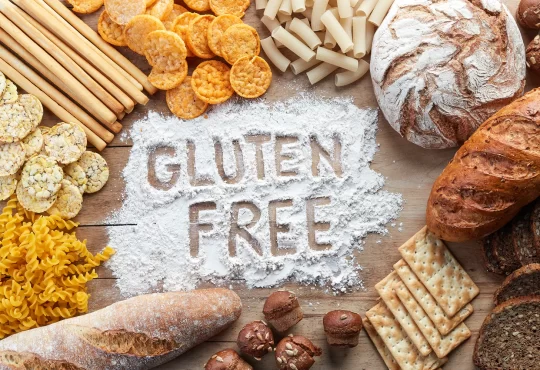
The “tough pregnancy is not an illness”; there is nothing like a pregnancy to drive a happy couple out of their minds for long months. Every opinion, a scare, or other information can stress you out and make you wonder and worry. To simplify things a bit, here are the most popular pregnancy myths. Part of which have some truth to them, but most are untrue and are just myths. Let’s separate the myths from the facts.
Pregnancy Myth #1 – Sushi is Banned During Pregnancy.
True. Since the fish in the sushi is raw, there is a high risk of catching bacteria such as salmonella and listeria, which may cause pregnancy complications, pre-term contractions, and even miscarriage. The seaweed is safe to eat during pregnancy, as long as it did not touch the same kitchenware the raw fish did.
Pregnancy Myth #2 – Vegetable Sushi is Banned During Pregnancy.
Partially true. Vegetarian sushi made at home is allowed when pregnant, as long as it’s not made with kitchenware used to make raw fish sushi. However, vegetarian sushi is banned in a restaurant since it is made with the same kitchenware as raw fish sushi that is prohibited during pregnancy.
Pregnancy Myth #3 – Don’t Eat Fish When Pregnant.
Partially true. Some fish have high levels of mercury, which can transfer to the baby via the placenta. High levels of mercury may be harmful to the baby’s neurological development.
Pregnancy Myth #4 – Avoid Painkillers During Pregnancy.
Partially true. Discomfort, headaches, muscle pains, and backaches are common during pregnancy, and women take painkillers to relieve the discomfort. Ask your healthcare provider which painkillers are safe for you during pregnancy.
Pregnancy Myth #5 – Avoid Drinking Coffee During Pregnancy.
Not true. It is OK to consume up to one to two cups of coffee a day if you are enjoying a normal pregnancy. However, higher amounts of caffeine may lead to complications and even miscarriage. Decaf is OK to drink.
Pregnancy Myth #6 – Diet Products Are Prohibited During Pregnancy.
Not true. There is no proof that diet products containing artificial sweeteners are harmful to the fetus.
Pregnancy Myth #7 – When Pregnant, You Are Eating For Two.
Not true. Many women think they are eating for two when pregnant, and due to overeating, they end up with dramatic extra weight. There is no need to eat double amounts. A well-balanced, nutritious pregnancy diet is what you need to grow your unborn baby. Moreover, women with weight gain tendencies should be extra careful to maintain a healthy pregnancy without complications such as gestational diabetes.
Pregnancy Myth #8 – Massage is Prohibited During Pregnancy.
Partially true. Avoid massage around your abdomen. It is dangerous during pregnancy. But massage in other parts of the body, such as facial massage or reflexology, are allowed.
Pregnancy Myth #9 – Lotions And Oils Are Helpful For Stretch Marks.
Not true. During pregnancy, your belly stretches with the growing uterus, which is the cause of stretch marks. After childbirth, these marks remain due to high levels of estrogen in the body. There is no scientific proof that lotions or oils help avoid or treat stretch marks.
Pregnancy Myth #10 – The Left Side is Best to Sleep On During Pregnancy.
Not true. You don’t have to sleep on your left side, the right side is just as good, but you will most likely find that sleeping on your side, left or right, is the only comfortable position after around the 20th week of your pregnancy.
However, according to doctors, the best position for sleeping during pregnancy is on your left side. Sleeping on your belly will be technically impossible, and sleeping on your back can cause dizziness or make you sweaty from too much pressure on the vena cava.
Pregnancy Myth #11 – Hair Dyes Absorb in The Body And Are Harmful to The Baby.
Not true. Dying your hair during pregnancy is allowed. The amount of dye that’s absorbed in the body, if at all, is minimal. Most research show that it is safe to dye your hair while pregnant, as the chemicals in permanent and semi-permanent hair dyes are not highly toxic. If you are concerned, dye your hair only after the 12th week of pregnancy, when the risk of chemical substances – hair dye or otherwise – harming the baby is much lower.
Pregnancy Myth #12 – Alcohol Should Be Completely Avoided During Pregnancy.
True. Alcohol consumption may lead to serious harm to the fetus, brain damage, congenital disabilities, long-term medical problems, and even hyperactivity. For this reason, pregnant women are strongly urged not to consume alcohol in any form, especially during the first trimester when so much of the baby’s nervous system is being formed.
Pregnancy Myth #13 – Secondhand Smoke Harms The Fetus.
Not known! Smoking cigarettes can cause harm in itself and lead to small embryos, abortion, premature births, and hyperactivity in older age, but there are still no extensive studies about secondhand smoking.
Pregnancy Myth #14 – Sex Harms The Fetus.
Not true. Intercourse is allowed during pregnancy. There are, though, cases such as high-risk pregnancy, when sex is prohibited. Otherwise, it is safe to have sex up until childbirth.
Pregnancy Myth #15 – During The Second Trimester, Libido is Heightened.
Not true. There are no studies that prove the connection between the two.
Pregnancy Myth #16: You Don’t Need Maternity Clothes
Not true! When you’re pregnant, it can be tempting for you to buy regular clothes in a larger size or even wear your hubby’s loose clothing. However, the reality is that both will never fit you as comfortably as clothes designed specifically for pregnant women. As soon as your bump begins to show, you’ll need a complete range of maternity wear from loose-fitting Kaftans and comfy nighties to stretchy leggings and supportive maternity bras.
Pregnancy Myth #17 – Eating Strawberries Causes Birthmarks On The Baby.
Not true. There is no connection between foods you eat during pregnancy and the baby’s skin conditions.
In general, if you are concerned that something may be harmful to you or your baby during your pregnancy, speak to your OBGYN to get answers. Don’t let people scare you out of your lifestyle and activities.




